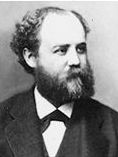Belladonna.- The smallest quantity of fluid drunk, excites a spasm; larynx painfully dry yet. the child refuses all drink. Larynx feels suddenly constricted. Breathing during sleep is intermittent or irregular. On falling asleep the child awakes and starts as if frightened. Sleep restless, tossing about the bed, talking or crying out. Kicks about, quarrels in sleep. Brain excited; face red; eyes injected; strabismus or dilated pupils; opisthotonic convulsions; clenched teeth, skin hot and dry or bathed in hot sweat, or fearful convulsions of flexor muscles. Over-susceptible to impressions, and hence made worse by strong light, noises, the least contradiction or cross word, by the irritation or dentition or the presence of irritating or indigestible substances in the abdomen. Urine stains a deep yellow or is scanty, even suppressed. Larynx sensitive to pressure.
NOTE:- General convulsions may possibly be palliated by firmly grasping the child ‘s thumbs. or by forcibly flexing the thumbs and toes.
Sambucus, employed by Hahnemann. Suffocative paroxysm after 12.P.M. aroused with anxiety, trembling, shortness of breath to suffocation; wheezing in the chest, difficult inspirations; face blue, eyes and mouth half-open, profuse hot sweat. Its symptoms do not seem to point distinctively to a spasm of the glottis, however.
MOSCHUS causes a spasm of throat, larynx and lungs. Sudden sensation as if, the larynx closed on the breath, as from inhaling Sulphur-vapor., It is more applicable during the course of disease which exhibit impending Paralysis of the pneumogastrics.
STRAMONIUM.- Child arouses from sleep frightened and clings to those around. Becomes blue in the face; muscles of the chest also spasmodically affected. Violent convulsions.
CHAMOMILLA.- Sensation of oppression and slight constriction in the region of the larynx. Dyspnoea as from suffocative catarrh (the larynx feels constricted), constant irritation to cough. Hot sweat on face and head, especially during sleep. Child becomes stiff and bends backwards, kicks with his feet when carried, screams and throws everything off. Staring eyes, child reaches and grasps for something, draws the mouth back and forth. Peevish, irritable; cries for things and pushes them away when given to him. Worse from anger or other violent emotions; worse from exposure to cold winds. Worse during dentition, accompanied by “Wind Asthma” “liver-grown” or green, watery, hot offensive stools.
OPIUM, especially after a fright.
CHELIDONIUM MAJUS causes a sensation as if the larynx was pressed from without on the oesophagus, but swallowing, not breathing, is made difficult. Constructive sensation in the trachea mounting towards the larynx. Constructive spasm in the gullet, forcing him to swallow. Choking sensation in the throat, worse by breathing. It has no similarity to the disease under consideration.
OLEUM ANIMALE.- Larynx feels, as if, it would be closed by outward pressure when lying on the back with the head bent forward.
GELSEMIUM.- Long croupy inspiration and sudden forcible expiration.
PHYTOLACCA.- Frequent spasmodic closure of the larynx; drawing of the thumbs into the palms; flexion of the toes; face distorted; muscles of the eyes so effected that the motions of one eye are independent of the other.
PLUMBUM causes closure of rima with sudden difficulty of breathing and asphyxia. Convulsions, during which expiration is suddenly arrested as if a valve closed the glottis. Emaciation. Stool, with much urging; hard; balls.
CUPRUM is well-adapted to cases which have advanced to the convulsive stage. On attempting to take a deep breath, dyspnoea, stridulous inspiration. Face blue and sometimes covered with cold sweat. Body stiff, spasmodic twitchings; thumbs clenched. Gurgling down the oesophagus.
MEPHITIS.- When drinking or talking, is liable to get foreign substances into the larynx. Inspiration difficult, expiration all but impossible; convulsions. Similar to Chlorine.
IODINE.- Tightness and constriction about the larynx, with soreness, hoarse voice etc. (see Record, 1873 p.89). Glands, cervical and mesenteric, enlarged and indurated. The child has a tendency to Marasmus. Excellent appetite, yet grows thin; or is indifferent to food; stools clayey; urine high-colored, scanty. Skin yellow; heart’s action feeble, and increased by every motion. Child unbearably irritable. Well-marked, painless Goitre.
BROMINE.- Gasping for breath, with wheezing and ratting in the larynx; child awakens gasping, hoarse, cries for water, which relieves. The face is hot and red and the eyes often injected and inflamed. Suitable rather to light-complexioned and blue- eyed children.
SPONGIA.- Starts from sleep with contraction of the larynx; whistling inspiration; breathes as through a sponge; breathes with head bent backwards.
VERATRUM ALBUM.- Spasmus Glottidis, with protruded eyes; weakness and cold sweat on the forehead.
ARSENICUM.- Sudden dyspnoea at night, threatening suffocation. The child breathes freely between spells, but appears weak and is restless. Caused by suppressed hives. Pale waxen face. Convulsions; body hot, sweaty, and pale.
PHOSPHORUS.- Select by constitutional symptoms. The child is unusually tall, but not fat. The skin is clear and transparent. Easily catches cold on the chest and becomes hoarse. Parents tuberculous. Stridulous inspiration in the evening of falling asleep.
LAUROCERASUS.- Cases in which the heart is affected. The child becomes blue, gasps for breath, face even livid, pulse thready.
SILICEA.- Not from local symptoms, but from constitutional. The child is rachitic; the head is disproportionately large; but the body emaciated The head and feet sweat; in the latter locality there is offensive sweat. Is nervous and excitable; hence external impressions readily awaken convulsions. Dentition retarded.
CALC.PHOS.- Delayed dentition; the child sweats easily, especially during sleep; becomes emaciated, but the abdomen remain flabby. The skin looks yellow. The child gets suffocative attack when lifted from the crib. It subject to Rachitis. There is diarrhoea with green, hot and watery stools. Craves salt meats, bacon, etc. Compare CalcareaOst.
SULPHUR.- Attacks come on when dropping off to sleep. Sudden jerks of the limbs in sleep. Slow dentition. Disposed to fever, etc.
BARYTA CARB.- The child grows slowly and becomes dwarfish and timid. Cannot learn rapidly. Glands, especially the tonsils, become swollen and indurated. Tonsillitis after every exposure to cold and damp air.

